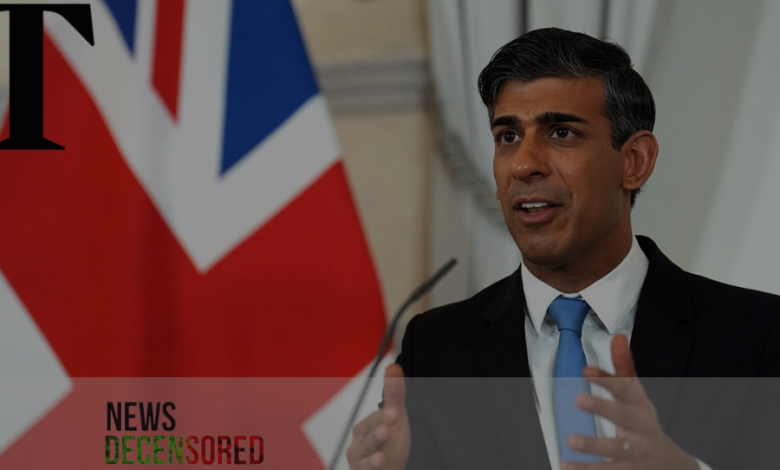Rishi Sunak slams ICC over Netanyahu arrest warrant

British Prime Minister, Rishi Sunak condemned on Tuesday the action by the International Criminal Court (ICC) to arrest Israeli Prime Minister Benjamin Netanyahu likely involving war crimes; this he considered counterproductive to the peace process in Gaza.
Sunak said during his Austria visit; ‘’There is no equivalence between a democratic country defending its legal right to self-defence against a terrorist group like Hamas’. He pointed out that this development while still under appeal would not assist in contending the ferocity and continuation of the conflict, in delivering assistance, or in rescuing hostages.
Amnesty International condemned Sunak’s position saying he was negating the authority of the ICC that came into being to supplant a chain of ad hoc UN tribunals to probe war crimes including the 1995 Srebrenica massacre. According to Kristyan Benedict, the crisis response manager at Amnesty UK, the Prime Minister was misleading through his statement and was indeed hampering any chances of getting justice for the Israeli and Palestinian victims.
‘Suggesting moral equivalence is odious and mendacious,’ Benedict said, laying the issue squarely on the rule of law, justice, and accountability and stating that the UK is aligning ‘itself on the wrong side of history’ in this thing by opposing the ICC.
Though the UK is a member of the ICC and thus required to execute any arrest warrants the government has challenged the ICC jurisdiction in this regard. Andrew Mitchell, the Deputy Foreign Secretary clearly stated that the UK has not recognised Palestine as a state and that Israel signed the Rome Statute under which the ICC was established in 2002.
Still, the UK encouraged an ICC arrest warrant for President Vladimir Putin last year concerning the Ukrainian invasion, though Russia likewise does not acknowledge the Rome Statute.
As for the comparison of the situations, the Prime Minister’s spokesman said it was absurd to do so, pointing out that Israel is defending itself against Hamas while Russia invaded the peninsula unlawfully.
Karim Khan, the chief prosecutor of the ICC representing Britain said he has ‘reasonable suspicion’ that Benjamin Netanyahu and Yahya Sinnwar, the leader of Hamas are guilty of war crimes and genocide. He also listed present Defence Minister of Israel Yoav Gallant and heads of the Hamas movement Mohammed Deif, and Ismail Haniyeh.
The arrest warrant is granted by three ICC judges who are to rule whether to prosecute the case and grant the arrest warrant in two months.
In his interview with Times Radio the Secretary of State for Levelling Up, Housing, and Communities Michael Gove accused the ICC of pro-Israel bias saying that the ICC treats Israel differently from other countries. ‘You can never compare Israel to Hamas; Hamas is a terror group whose aim is to kill while on the part Israel is a country which is striving to protect its citizens. ” Gove also claimed that the ICC is incompetent by not probing into other nations which are accused of war crimes like Syria, Myanmar, and Sudan.
Even Lord Cameron, Foreign Secretary, interpreted the action of the ICC prosecutor as a mistake that was unhelpful in the release of hostages and did not help political transformation in Israel. He pointed out that ICC had planned to visit Israel but had cancelled the planned visit and instead proceeded to make the announcement.
‘This timing decision looks rather counterproductive and unlikely to help in defusing the conflict and or enhancing the humanitarian situation,’ concluded Cameron.
Such was the case of the UK government which rejected the attempt by ICC to arrest Netanyahu; this is an illustration of the grey area of international law and politics of the Israel-Palestine conflict. On one hand, the ICC seeks justice and prevents impunity, but on the other hand, politics has it that leaders debate on the jurisdiction of the ICC and its interference with the peace-making processes.




